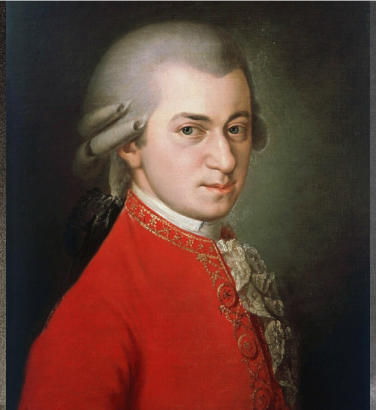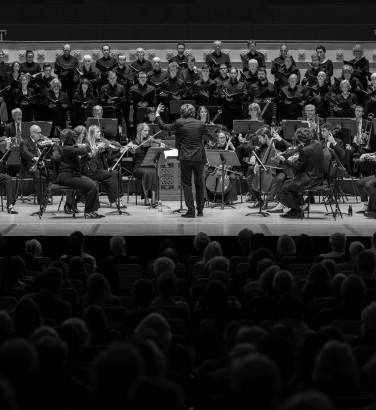
Young composers on the cusp of greatness
19 Jun 2023
News Story
From left to right: Franz Liszt, Frédéric Chopin, Felix Mendelssohn and Ludwig van Beethoven
As much as there is to be admired in the mature works of any artist, there can be something even more fascinating in seeing the emergence of their talent in younger years. Not to be confused with the phenomenon of the child prodigy (whether applied to Mozart or Michael Jackson), this is more a case of seeing how young talent can be successfully nurtured so it blossoms into adulthood.
Mendelssohn is perhaps the shining example of this: his String Octet (composed at the ripe old age of 16) was preceded by a wealth of chamber music and a dozen String Symphonies, all of which served to hone his skills as a composer. These earlier works are rather less known, but seen in the wider context of his oeuvre, they offer a fascinating insight into a developing musical genius.
A few decades earlier, Beethoven’s drunken father wasn’t above dragging his son out of bed in the small hours to entertain his equally inebriated friends. As a famously cantankerous adult, it is hardly surprising there are signs of a dark personality even in Beethoven’s early works, with many stormy pieces emerging long before his first truly mature compositions. Coming after the likes of the Pathétique
piano sonata, his Symphony No 1 (which forms the conclusion of the SCO’s The Lark Ascending concerts in late June) can seem a little tame, but as music intended for a wider audience than a piece for solo piano, the symphony required a more considered approach. That said, there’s a lot of fun to be had in spotting the young composer’s subversions of long-established conventions.
Hats off, gentlemen: a genius!
If Schumann's acclamation of the 21-year-old Chopin acted more as confirmation of the latter's skills – this being in response to the publication of the latter’s Variations on Là ci darem la mano, written four years earlier – the same cannot be said of Franz Liszt's first published work. He was all of 11 years old when Anton Diabelli invited a number of composers to write a single variation on a theme he had written, with the intention of publishing them in an anthology. Some fifty composers' contributions were eventually put together, but only three can truly lay claim to being still known to this day: Beethoven (with his monumental Diabelli Variations), Schubert and Liszt himself.
Fast forward to the 20th century and the young Benjamin Britten found regular work writing scores for film documentaries, marked out by his ability to compose at speed. It was this particular skill which led to his being commissioned, at a mere three months’ notice, to write a piece for performance at the 1937 Salzburg Festival. This would be his Variations on a theme of Frank Bridge (also included in our concerts this month), a work in which the 24 year old set his stall out as a remarkably accomplished composer. His sense of humour, a key part of his takes on Italian, French and Austrian music (in the Aria italiana, Bourrée classique and Wiener Walzer respectively), would not be as evident in his later works, but his deft hand at orchestration and ability to communicate to his listeners were already very much in evidence.
Whether we include this works among their respective composers’ absolute masterpieces is of course debatable, but they possess a charm all of their own. They play an essential role their creators’ development as musicians, so we overlook them at our peril.

The Lark Ascending
Join the SCO and director/violinist Isabelle van Keulen for a concert of young composers whose stars were very much in the ascendant ...
Related Stories
![Three men, the first two in 18th century formal dress (one in black and white, one in a red coat), the last in an old photo, smoking]()
What is a sinfonia concertante?
17 March 2025
We delve into the history of a hybrid genre ...![]()
The SCO Chorus on music for Lent
10 March 2025
With Easter just around the corner, we delve into perhaps the richest (and often darkest) choral repertoire of all ...![]()
The bassoon concerto
3 March 2025
For the last article in our concerto series (for now), we turn to an instrument too often dismissed as the orchestra's resident joker.


